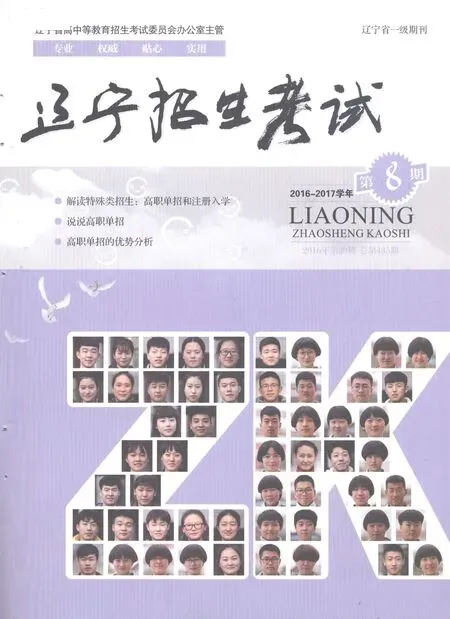情态动词用法归纳总结
抚顺市第二中学 王晓艳
清原高中 王永丽
高考英语试题对词汇考查主要以实词为主,其中对动词的考查是最多的,动词包括实义动词、系动词、情态动词和助动词。这其中情态动词主要是用来表达说话者的观点、看法或者意见;提出建议或者表明态度;表示礼貌或者客气等。因此由于语言习惯的差异,我们对情态动词的掌握和使用略显吃力。下面我们就情态动词的用法进行简单的总结和归纳。
常见的情态动词有: will,shall,can,could,may,might,must,need,dare,ought to等。他们不能自己独立充当谓语,必须和系动词或者实义动词一起构成谓语,并且放在实义动词和其他助动词之前;没有人称和数的变化;都可以提到主语之前,构成疑问句,也都可以在后面加上not,构成否定结构(ought not to特殊)。
一、表示“主观猜测”情态动词的用法
在情态动词表示主观猜测时,如果考生不了解其具体用法,就有可能造成理解的偏差和语法填空中形式上的错误,所以有必要就一些易错点和重点进行归纳和总结。
常用来表示“主观猜测”的情态动词有:must,may(might),can(could)。 关于此部分内容应重点掌握以下三点:
1.情态动词表示“主观猜测”时,must,may只用于肯定句式中,can只用于否定句式中。 如:
He must have a lot of money,for he spends money like water.
She may be in her bedroom but I am not sure.
Her father can't be talking with her,for he passed away several years ago.
Where can my teacher be?I can't find him anywhere in school.
2.猜测的时间和动词形式要保持一致,和情态动词的形式没有关系,may/might,can/could只表示猜测语气,不表示猜测的时间。
(1)对现在情况的猜测:must/may/can+ (状态动词)原形/be动词或be doing形式。
只有表示“状态的动词原形”才可以用于此种表示主观猜测的句式中。也就是说,如果动词是“行为动词”,和这三个情态动词连用,此时的情态动词句不再表示“主观猜测”。
The house must belong to her.这房子肯定是他的。(状态动词,表主观猜测)
—Where is Father? 父亲在哪?
—He may be in his study.可能在书房。(be动词,表主观猜测)
Don't worry about the children.They must be playing football on the playground.不用担心孩子们。他们肯定是在操场上踢球呢。(be doing形式,表主观猜测)
The house must be repaired.这房子必须维修了。(表示命令)
(2)对完成动作的猜测:must/may/can+have done.如:
Tom can't have left his office,for his car is still in the parking lot.汤姆不可能已经下班了,他的车还在停车处。
You know the place so well.You must have been there many times.你对这地方这么了解,你肯定去过很多次。
You may have learned the news but I still want to tell you. 你可能已经知道了这消息,但我还是想告诉你。
(3)对过去发生动作的猜测:must/may/can+have done+过去时间状语 (或通过上下文体现出过去时间)
Tom must have told you the news yesterday.汤姆肯定昨天告诉你这消息了。
They might have left when the news reached them.收到消息时,他们可能已经离开。
3.反义疑问句的构成
含有主观猜测情态动词句子的反义疑问句的构成,简单问句不用句中的情态动词,而是根据情态动词后面动词的形式来完成。如:
The house must belong to her,doesn't it?其结构和The house belongs to her,doesn't it?相同。
They may have left,haven't they? 其结构和They have already left,haven'they?相同。
Tom must have told you the news yesterday,didn't he?其结构和Tom told you the news yesterday,didn't he?相同。
The children must be playing football on the playground,aren't they?其结构和 The children are playing footballon the playground,aren't they?相同。
观察上述句子,我们可以发现,含有表示主观猜测情态动词的句子转变为“反义疑问句”时,简单问句的结构和把该句转变为非猜测句式,即说明事实的句子的反义疑问句的结构相同。
二、情态动词用于虚拟的情况
1.should have done/ought to have done;should not have done/ought not to have done表示“本该做……(实际上没做)”。 如:
You should have told me the news earlier.你本应该早点告诉我这消息。
You ought not to have told her the news.你本不应该告诉她这消息。
2.could have done 表示 “本来能做……(而实际上没做)”。 如:
You could have done the work better with less money.你本来可以花更少的钱把这项工作做得更好。
3.needn't have done表示 “本来没有必要做……(而实际做了)”。 如:
You needn't have come here in person.你本来没有必要亲自来。
4.would rather that sb had/had not done sth....但愿某人做了或没做过……
I would rather you had not told me the annoying news.但愿你没告诉我这令人不安的消息。
三、和情态动词有关的固定搭配
A.和can/could构成的固定词组
1.as....as one can=as...as possible表示“尽可能地……”如:
Don't worry.I will help you as much as I can.(as much as possible)不用担心,我会尽力帮你。
相同含义的表达还有:do what one can/do everything one can/do all one can to do sth...
2.can+否定词+too/enough表示“怎么都不为过……”
You can never be too careful when crossing the street.
You can never be careful enough when crossing the street.
穿越马路时,怎么小心都不为过。
3.can't but do sth...表示“只能、只好做……”
Facing the desperate situation,I couldn't but give up.面对那绝望的情形,我只好放弃。
4.can't help doing表示“情不自禁做……”
Hearing the happy news,the little girl could not help jumping up with joy.听到这好消息,女孩情不自禁地跳了起来。
B.和may/might构成的固定词组
1.may/might as well用来提出建议,含义为“不妨做……最好做……”
Since there's nothing more to do,we may as well go to bed.既然无事可做,我们不妨睡吧。
You may as well tell us now—we'll find out sooner or later.你最好现在告诉我们——早晚我们会查明真相的。
2.may/might well用来表示“预测”,含义为“可能……”
She may well not want to travel alone.也许她不喜欢独自旅游。
3.may as well do sth.as do sth else.与其做……还不如……
You may as well throw your money into the sea as lend it to him.与其把钱借给他,还不如把钱扔入大海。
C.其他词组
1.would rather do...宁愿做……
I'd rather have a quiet night in front of the TV.我想看电视静静地度过一个安静的夜晚。
2.would do...rather than do...宁愿做……也不愿做……
I would die rather than live in dishonor.我宁愿死也不愿苟活于世。
3.would/should like/love/prefer to do想做……
What would you like to do this evening?今晚你想干什么?
4.had better do...最好做……
You had better tell us the truth.你最好告诉我们事情的真相。
情态动词具体含义和用法,大家都比较熟悉,这里就不一一阐述。在高考阅读理解试题中,对于作者的态度提问:What is the author's attitude towards?以及对描写语气相关的提问:What is tone of the author when he describes...?情态动词关于我们作出正确选择就有很大的参考价值。比如说:如果阅读文章中大量出现了likely,perhaps,may,might,can,could,那么作者的语气就应该是 very cautious相当谨慎的。

